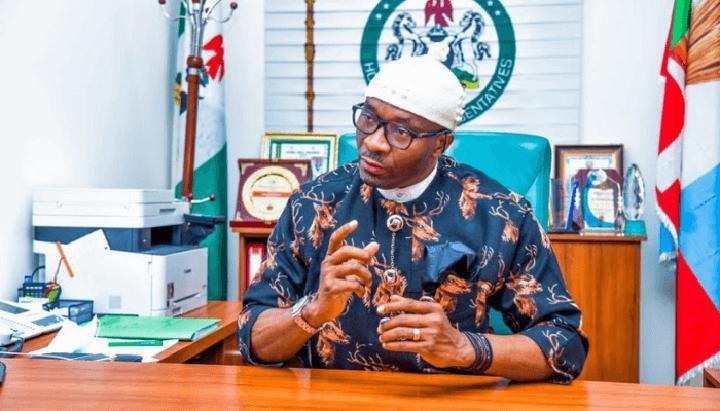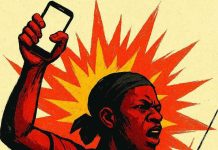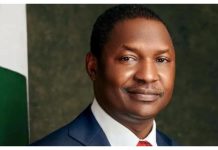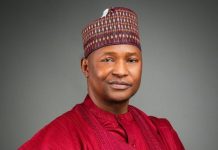Africa-Press – Nigeria. The Deputy Speaker of the House of Representatives, Rt Hon Benjamin Okezie Kalu, has stated the critical need for better funding of key justice and social welfare institutions.
Kalu believes that insufficient funding hampers their ability to effectively fulfill their mandates, ultimately compromising the welfare of many citizens, especially the vulnerable ones in the society.
He made these remarks during a meeting held in his office with a delegation from the United Nations Development Programme and the European Union. The meeting centered on the Rule of Law and Anti-Corruption (RoLAC) Programme Phase Two.
In a statement released by his Special Assistant on Press Affairs, Udora Orizu, the Deputy Speaker stated that adequate funding is important for the proper functioning of institutions responsible for upholding the rule of law and ensuring citizens’ well-being.
Kalu commended the RoLAC Programme’s dedication to securing appropriate funding for these institutions and improving access to rights and justice for women, children, and vulnerable individuals in Nigeria.
He pointed to the rights-based legislations enacted by the National Assembly, such as the Violence Against Persons Prohibition (VAPP) Act, the Administration of Criminal Justice Act, and the Discrimination Against Persons Prohibition Act. These legislations, he noted, were established to ensure justice, equality, and the protection of the most vulnerable members of society.
“I am deeply honored to stand before you today to address two critical issues that demand our attention and action. The RoLAC Programme, which has been diligently working towards enhancing the rule of law and anti-corruption reforms in Nigeria, has sent us a compelling request for support in two key areas. I wish to emphasize my enthusiasm and intent in providing support for the following demands. Oversight for the Implementation of Rights-Based Legislation, the first crucial area is the oversight for the implementation of rights-based legislation. Nigeria through the National Assembly has made significant progress in enacting laws that protect the rights of its citizens, such as the Violence Against Persons Prohibition (VAPP) Act of 2015, the Administration of Criminal Justice Act of 2015, and the Discrimination Against Persons Prohibition Act of 2018.
“These legislations were born out of the need to ensure justice, equality, and the protection of the most vulnerable in our society. However, it is one thing to have these laws on paper, and it is another to ensure that they are effectively implemented. In a country as diverse as Nigeria, it is imperative that we ensure that all citizens have equal access to justice and are protected from discrimination and violence. The VAPP Act, for instance, seeks to protect women and vulnerable individuals from all forms of violence, and our commitment to its implementation demonstrates our resolve to create a more just society for all. The second critical area that demands our attention is budgetary decision-making to adequately fund critical justice and social welfare institutions. It is no secret that adequate funding is the lifeblood of any institution, especially those that are responsible for upholding the rule of law and ensuring the welfare of our citizens.
“Justice and social welfare institutions play a pivotal role in ensuring that our society remains just, equitable, and humane. Inadequate funding can hamper their ability to carry out their mandates effectively. Without proper funding, the wheels of justice turn slowly, if at all, and the welfare of our most vulnerable citizens is compromised. The RoLAC Programme rightly seeks to partner with us in this crucial endeavor. By working together, we can ensure that our budgetary decisions prioritize the funding of these institutions, ensuring they have the resources necessary to fulfill their roles in society. We are presented with an opportunity to make a lasting impact by partnering with them. Our support and strategic collaboration can lead to a more just and equitable society where the rights of all citizens are upheld, and justice is accessible to everyone,” he said.
The Gender and Human Rights Lead of the United Nations Development Programme (UNDP), Onyinye Ndubuisi, suggested starting the collaboration with a legislative summit to review policy documents related to women and girls in Nigeria. She stated the goal of eradicating violence against women and girls and ensuring that they can live without fear.
For More News And Analysis About Nigeria Follow Africa-Press







